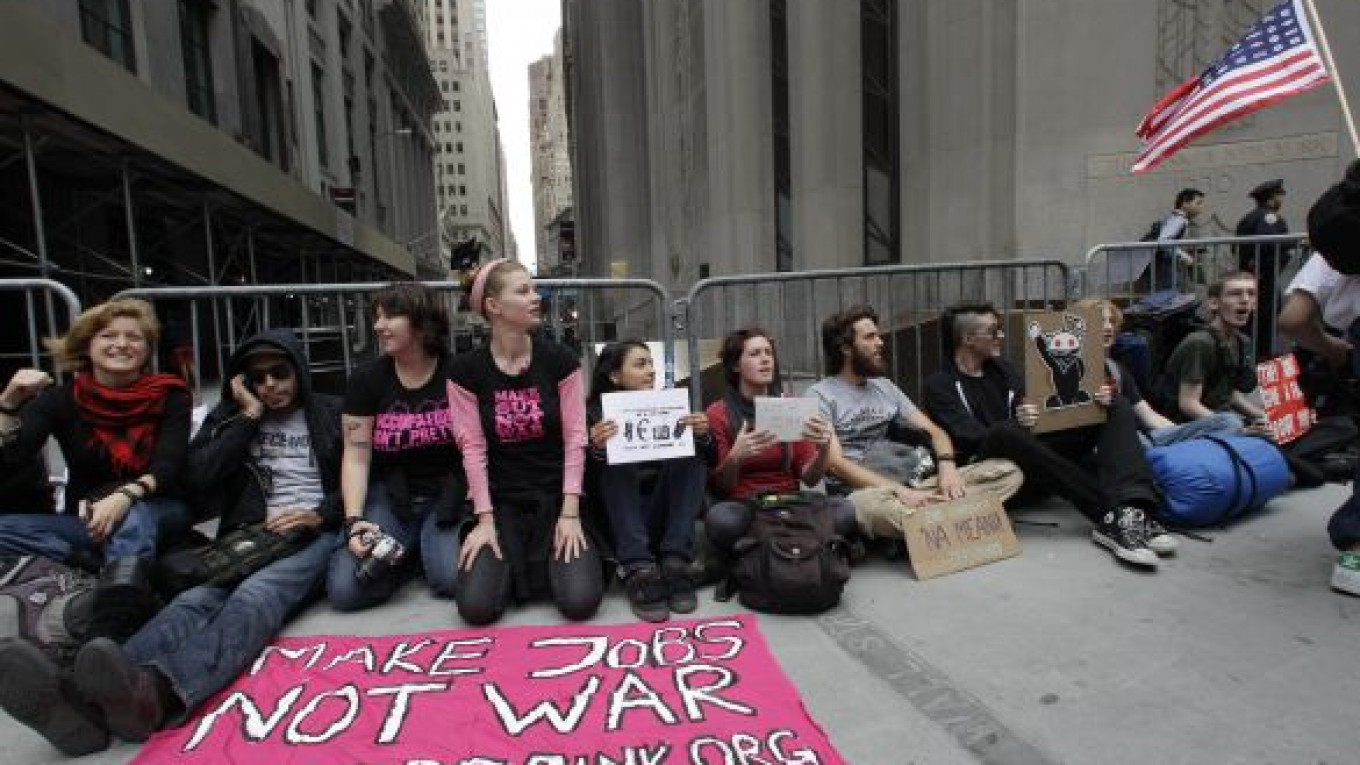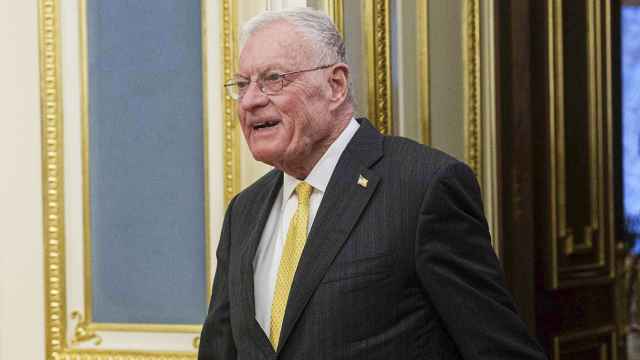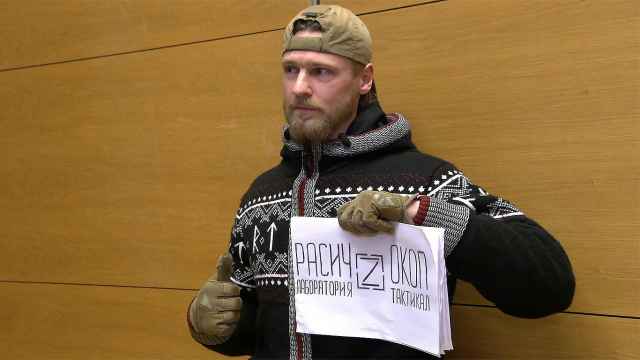They've swarmed the streets of New York, spread to cities across America and erupted in fury in European capitals, but the Occupy Wall Street protests popping up around the globe have yet to materialize in Russia.
Complaints of economic inequality could surely find a voice in Moscow, but demonstrations against the haves by the have-nots have yet to pick up steam.
Analysts and politicians contacted by The Moscow Times ascribed the apathy to the weakness of Russian capitalism, and added that the government would crack down on any discontent, nipping serious social protest in the bud.
An Occupy Russia has appeared on Facebook, but as of late Tuesday it only had 382 people saying they "liked" it. An even-smaller Occupy Moscow only had 151 fans. Compared with the 242,000 "likes" of the main Occupy Wall Street page — even Occupy Des Moines has more than 500 — a burgeoning movement it is not.
On Saturday, when simultaneous protests were held in cities around the world — with thousands raucously bringing traffic to a standstill from Santiago, Chile, to Madrid — a small but determined group of perhaps 10 Muscovites joined in near the Bolshoi Theater, posted on Facebook showed.
Another photo, carried by Openspace.ru, showed that protesters hung a nearby featuring the iconic anarchist Guy Fawkes mask from the film "V for Vendetta" above the slogan "Today the Brooklyn Bridge, Tomorrow the Bolshoi Kamenny!" But that appeared to be the extent of it.
Still, the global protests have caught the attention of the country's leadership and have appeared to create a dilemma for Prime Minister Vladimir Putin as he seeks to return to the office of the presidency. He has used the threat of unrest to defend plans to bolster social spending.
"Hundreds of thousands of people — not just a bunch of outcasts but hundreds of thousands — are coming out onto the streets to demand what their governments are unable to fulfill," he said Monday. "If this [social spending] does not take place, then we could get to a situation that we see in countries with developed economies."
A by state-run VTsIOM last month indicated that those who viewed Russia's economy as "good" had dipped to a dismal 7 percent, while those who saw it as "bad" rose to 36 percent.
Yet so far there has been no sign of "tent cities at bank or stock brokerage headquarters," or "indignant demonstrators near the palaces and villas of government officials and commercial magnates," the respectable liberal web newspaper Gazeta.ru noted in an .
Despite the perceived sense that things may not be entirely right in Russia, many observers said conditions were not yet ripe for the types of protests shaking the West to emerge.
"I don't think people here are so angered by the actions of corporate and financial institutions as you are seeing elsewhere," said Duma Deputy Ilya Ponomaryov, of the A Just Russia party. "Capitalism and whatever its ills are not so firmly entrenched here. There is a deeper history and feeling over these issues elsewhere."
"The main concerns here are perhaps more political, rather than directly financial, so the meaning of these protests is maybe not resonating in the same way," he said by telephone Tuesday.
Even if the public outrage existed, it would never be allowed to flourish, said Andrei Piontkovsky, an independent political analyst.
"Putin would never allow it to get started," Piontkovsky said. "He has already said that what is going on in the West would not be good for Russia. I think that is signal enough we won't see it here."
At the same time, state-run television has widely broadcast footage of the protests but has presented them as proof that the United States is a failing and reckless steward of the global economy.
The broadcasts have also tended to focus on the more fringe elements in the crowds to perhaps discourage Russians from following suit.
A Message from The Moscow Times:
Dear readers,
We are facing unprecedented challenges. Russia's Prosecutor General's Office has designated The Moscow Times as an "undesirable" organization, criminalizing our work and putting our staff at risk of prosecution. This follows our earlier unjust labeling as a "foreign agent."
These actions are direct attempts to silence independent journalism in Russia. The authorities claim our work "discredits the decisions of the Russian leadership." We see things differently: we strive to provide accurate, unbiased reporting on Russia.
We, the journalists of The Moscow Times, refuse to be silenced. But to continue our work, we need your help.
Your support, no matter how small, makes a world of difference. If you can, please support us monthly starting from just $2. It's quick to set up, and every contribution makes a significant impact.
By supporting The Moscow Times, you're defending open, independent journalism in the face of repression. Thank you for standing with us.
Remind me later.






